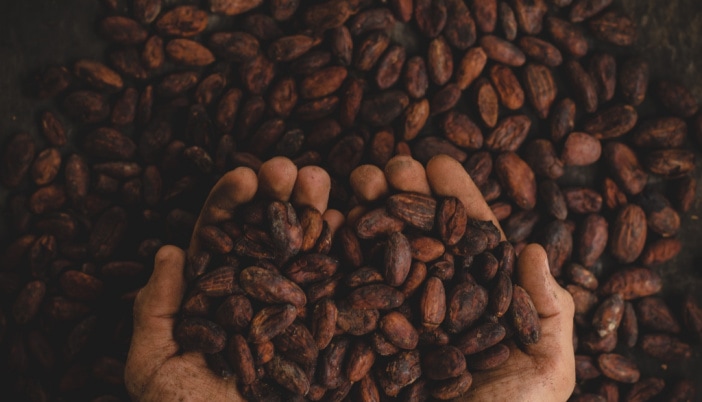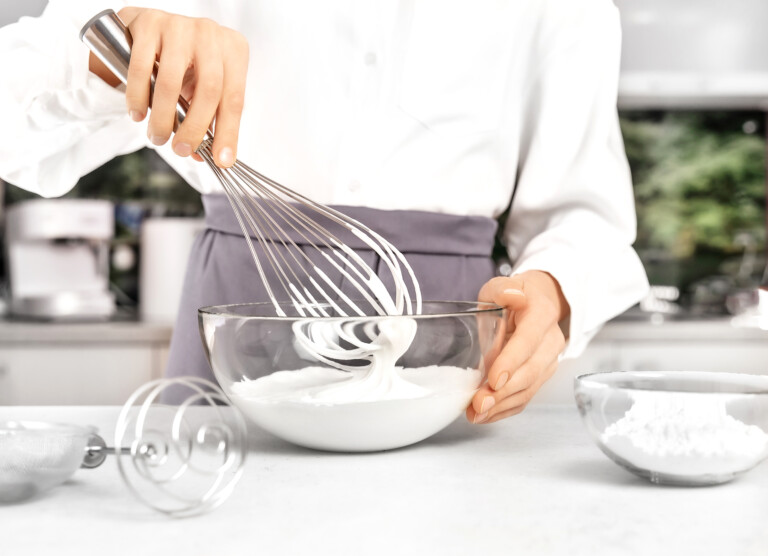Is CeraVe Cruelty-Free?
CeraVe began in 2005 when it was discovered that many skin disorders shared something in common: a compromised skin barrier.
Working with dermatologists, CeraVe created a range of skincare products using three ceramides that work together to restore the skin’s barrier.
It also has become a popular brand among those on TikTok with just over 878 million hashtags.
So CeraVe has a lot going for it but is one of those things being it’s a company that is cruelty-free? CeraVe isn’t cruelty-free. Read on to find out why.
As an Amazon Associate, I earn from qualifying purchases. The links below may be affiliate links. Please read my disclosure policy for more information.
CeraVe’s claim
A statement on the company’s website is pretty straightforward:
“No, CeraVe products are not tested on animals”
That should be the end of the matter. Yet there are plenty of people in cyberspace who should beg to differ.
For example, Hayley, who runs The Vegan Abroad blog astutely comments that any company can claim they are cruelty-free, as such a statement isn’t legally defined.
Certainly, it’s ethically clear what cruelty-free means, yet it’s so easy for companies to claim that badge of honor without being 100% genuine.
Over to China
Okay, CeraVe is sold in China. No real issues there, perhaps. On the Chinese version of the company’s website is still the claim that their products aren’t tested on animals.
But the reality is that, on the Chinese side, there is the possibility that animal testing does occur.
Let’s break down the facts as to why there is doubt over CeraVe’s anti-cruelty-free claim.
Since 2012, there has been a strong push by PETA to have China curb its practices of animal testing. China listened and acted, to some degree anyway.
New regulations from May 1, 2021
In China, mandatory testing of cosmetics products on animals came to an end. Yet that doesn’t mean that animal testing has ceased completely.
The new regulations state:
- That only products that fall under the banner of “general cosmetics” are excluded from animal testing. Some examples of these products are sunscreen, anti-aging creams, shampoos, and makeup.
- A post-market animal testing policy exists which companies wanting to sell in China have to agree to.
If a product is deemed to be specializing in a particular area (that means it makes certain claims about the efficacy of the product), then it has to undergo testing.
The fact that CeraVe has a market in China means that there is the possibility that its products are tested on animals (no matter what it claims on its websites). That’s because CeraVe has to agree with the new regulations that still allow for testing.
Some ingredients of concern
CeraVe is pretty open about the ingredients that they use in their products. On their US site they list the following components that go into their products:
- Benzol Peroxide
- Dimethicone
- Hyaluronic Acid
- Lactic Acid
- Niacinamide
- Petrolatum
- Pramoxine Hydrochloride
- Retinol
- Salicylic Acid
- Titanium Dioxide
- Urea
- Vitamin C
- Zinc Oxide
Nothing really to be worried about with those ingredients as they are either synthetically or naturally sourced.
However, CeraVe does use cholesterol and glycerin in some of its products. These two components can be of some concern as they may be sourced from animals (CeraVe isn’t very forthcoming about how they source their ingredients).
For example, cholesterol can’t be derived from plant-based sources so that leaves only one way to get it: use animals. That’s because it is a lipid.
Typically cholesterol is sourced either from the spinal cords of cattle or from the lanolin contained within sheep’s wool.
However, more and more companies are seeking ways in which to produce cholesterol synthetically. Yet, there is still uncertainty as to how CeraVe manufactures its cholesterol.
Glycerin can be extracted either from plants or animal tallow (a part of beef and mutton fat). When taken from plants, the oil is split from the fatty acid by the use of heat, pressure, and water.
Tallow requires the animal to give up its life for the fat to be extracted. Animal-derived glycerin is created by heating the tallow until it thickens.
Then it is refrigerated, then boiled or strained to remove any impurities. How CeraVe obtains its glycerin is an open question.
Beeswax is used in CeraVe’s Mineral Sunscreen Stick. Many see beeswax as not being cruelty-free since it requires the melting of the beehive.
Also, the queen bee has her wings clipped so that she can’t leave the hive. Ask yourself, is that a great way to treat bees?
The evidence is mounting up
It’s easy for CeraVe to claim that it’s cruelty-free, yet they have a market in China. Also, some of their products contain several ingredients that leave one wondering if animals are used in the manufacturing of these elements.
This points to the reality that CeraVe uses animal-derived components in its products. On top of that, to meet Chinese regulations the company may be required to have their cosmetics tested on animals to sell in China.
A word from CeraVe’s parent company
In 2017, CeraVe was bought by L’Oreal. A company that is recorded on PETA’s database as a company that does test on animals. Yet, L’Oreal begs to differ.
On its US website, under the banner of “Beauty Without Animal Testing”, L’Oreal states:
“At L’Oréal, we care for animal welfare and we do not test on animals. We are for beauty with no animal testing.
Since 1989, 14 years before the “EU” regulations required us to do so, we have not tested the safety of our products on animals.
Because we care about animal welfare, over 40 years ago, L’Oréal pioneered the development of human reconstructed skin that can be used to evaluate how cosmetic ingredients and products behave on human skin.
We currently manufacture different types of reconstructed human skin in our Episkin labs in France, China, and Brazil – and we make this technology available to governments, organizations, and other companies for testing purposes, so that they don’t have to test on animals.
L’Oréal has been at the forefront of alternative methods for over 30 years.
In addition to our skin models, we have a large number of non-animal predictive assessment tools, such as molecular modeling, expert toxicology systems, imaging techniques, and many more. Our scientists continue to pioneer new non-animal methods and technologies, including artificial intelligence, in our labs across the world.
To help increase the acceptance of non-animal methods for safety evaluation. We also work with a range of scientific experts, NGOs, and authorities from around the world.
We are for beauty with no animal testing.”
In L’Oreal’s timeline of its progress toward non-testing on animals it states:
“Since 2014, some products manufactured and sold in China, such as shampoos, shower gels and some make-up products, are no longer tested on animals. In May 2021, these same products imported into China will no longer be tested on animals provided that they can show a certification of compliance with Good Manufacturing Practices from the country in which they are manufactured and a safety assessment”
Notice the magic words “some products”. That leaves the interpretation open to suggest that when legally required by a country’s regulations, L’Oreal and also CeraVe have to have products tested on animals.
A push towards vegan approved cosmetics
CeraVe has heeded the call toward more vegan-based products. It has committed to having its cosmetics 90% vegan-friendly by 2021. The website, Allure, contacted the company about its push towards vegan beauty products and received this reply:
“CeraVe offers vegan-friendly products in over 30 countries, [though] some formulas available in the United States and Canada today contain an important and beneficial ingredient which is not vegan. The brand’s objective, however, is to replace it over time with a vegan-friendly substitute and further achieve its mission of therapeutic skin care for all”
That means that some of the formulas currently used by CeraVe contain ingredients that are derived from animals. Not cruelty-free!
CeraVe alternatives that are cruelty-free
Perhaps you have been using CeraVe’s products without truly realizing they aren’t cruelty-free. Now you know that they still may be required by some international legislation to have their cosmetics tested on animals, you are wondering which alternative brand to go with.
Here are some of the best cruelty-free skincare brands that you can consider switching to.
Krave Beauty
Founded in 2017 after Liah Yoo became frustrated with skincare products that promised so much, yet failed to deliver, Krave Beauty has been pushing social-responsibility boundaries ever since.
It’s a company that is focused on not only skin care but also the sustainability of our planet. The products are 100% cruelty-free and they have the certificate from PETA to prove it. Thanks, Liah, for caring about the planet and our furry friends.
Paula’s Choice
A part of the Unilever group, Paula’s Choice began its journey back in 1975.
It all started when Paula Begoun would tell customers who visited her cosmetics counter the truth about the skincare products they were using. The result? Paula lost her job!
So you know that you are dealing with a company that isn’t scared about speaking its mind and sticking up for its principles. How’s that for consumer confidence?
The range of products offered by Paula’s Choice is cruelty-free. The company is both Leaping Bunny and PETA approved.
Now the only thing you have to do is decide which skincare product you want to buy from this amazing company.
Meow Meow Tweet
With an awesome name like Meow Meow Tweet (inspired by the founders’ two cats and bird), you know this company loves animals!
The brand began after Tara Pelletier and Jeff Kurosaki were left wondering why their skin felt so good after using homemade soap that they received as a gift. That made them curious and they spent a lot of time in research looking for the answer and developing their range of skincare products.
Their philosophy is to be 100% vegan-approved and cruelty-free. They claim the only animals that appear on their products are the amazing illustrated ones (both founders met when attending art school).
It has been certified by Leaping Bunny since 2014 and also is PETA-approved.
100% Pure
The 100% Pure name is a reflection of the company’s commitment to using the purest and healthiest ingredients in its products. Also, it is dedicated to educating people so that we can all live a more beautiful life while looking our best!
Regarding being cruelty-free, 100% Pure takes a hands-on approach when sourcing the ingredients to ensure that nothing has been tested on animals nor derived from animals. They state that they never, EVER test on animals.
As part of its philanthropy, when you purchase a product from 100% Pure they will donate one bowl of vegan dog food to a homeless dog shelter in China. So it’s a win-win situation for everyone!
It is PETA Certified and also partners with Leaping Bunny as well as a raft of other amazing animal welfare groups.
OZ Naturals
Angela Irish is a licensed aesthetician and holistic researcher who tried and got tired of the natural products that were available on the market. The claims these products made fell short of the promises and some of the ingredients were questionable.
That led Angela to launch OZ Naturals in 2013.
A brand that incorporates everything that Angela desired within natural skincare products. Every ingredient is obtained by cold-pressing (a technique that extracts the desired components without them being contaminated or compromised).
The company supports a range of non-profit organizations that are involved in environmentally sustainable practices, empowerment of women, and animal welfare.
It is Leaping Bunny approved.
A final word about CeraVe
CeraVe makes the statement that its products aren’t tested on animals. A claim that lacks any legal definition. However, some of the ingredients it uses may be sourced from animals.
Additionally, the company claims that it is yet to achieve its goal of offering 90% vegan-approved products.
Even when it does reach that goal, there are still around 10% of the CeraVe products that aren’t vegan (which means animal derivatives are used).
CeraVe isn’t cruelty-free and if you have been using their products, we have given you several alternative brands that you can switch over to that are officially cruelty-free certified.















